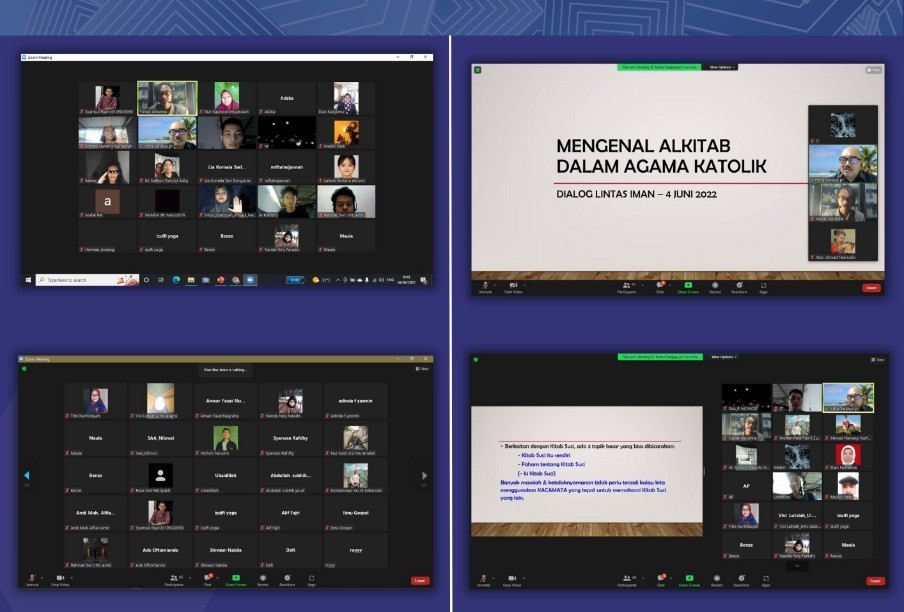Interfaith Discussion in Getting to Know the Catholic Religious Bible by HMPS of Religious Studies

The Association of Student Study Programs (HMPS) of Religious Studies of UIN Jogja, has finished carrying out online Interfaith Dialogue activities on Saturday (04/06/2022). The event is one of the programs of the Intellectual Division of HMPS Religious Studies,Sunan KalijagaState Islamic UniversityYogyakarta for the 2021-2022 service period and is an effort so that Religious Studies students in particular and the community in general, can get to know and there is no misunderstanding between religious communities.
Because it is still in the recovery period of the pandemic and some Religious Studies students are still in their hometowns, this event is held online. The theme was "Tadarus Bible: Getting to know the Bible in Catholicism" which at that time was guided directly by Yuniar Avicenna as CO. Intellectual Division of HMPS Religious Studies, with keynote speaker Dr. Dian Nur Anna, S.Ag., M.A. (Head of Study Department Religious Studies) and presenting speakers who are experts in their fields, Father Dr. V. Indra Sanjaya (Lecturer at the Faculty of Theology, Sanata Dharma University, Jogja).
According to Fahril Akbar, a member of the Intellectual Division of HMPS Religious Studies, the dialogue took this theme because it was to get to know more about the bible in Catholicism, as Catholics understand the Bible, how to read it, as well as its history and differences with Protestantism. The purpose of holding this interfaith dialogue is not as a place to argue with each other and show off their respective religions, but as a discussion space for students and serves to form students who can spread a sense of tolerance.
The dialog was not only attended by Religious Studies students of Sunan KalijagaState Islamic UniversityYogyakarta, but there were also Religious Studies students from other institutions. Theology students from Sanata Dharma University and Duta Wacana Christian University also participated.
"This discussion was held so that we can learn and understand each other better, because differences are real, so they are not important in themselves. What is more important is how we respond to these differences," said the moderator as a closing statement at this interfaith dialog.
Author: Nibrosi (HMPS of Religious Studies Study Departemen Sunan Kalijaga State Islamic University Yogyakarta)
